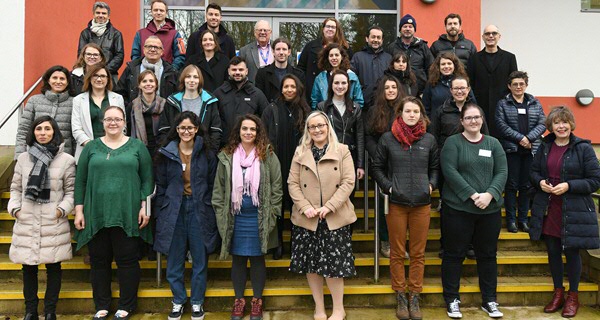Successful Launch Event for the International Network SeaChanges
Forty eight researchers from across the SeaChanges network gathered in York for the launch event of the programme from Tuesday 6 to Saturday 10 January 2020, which was a huge success. Attendees included the PhD students and supervisors from the various institutions and representatives from some of our wide network of partner organisations. The event included a kick-off meeting to introduce the programme and meet the other attendees, followed by a three-day workshop for the students covering bioarchaeological methodologies. Inspirational keynotes from leading researchers in the fields of history, archeology, and marine conservation biology, Poul Holm, Naomi Sykes, and Callum Roberts provided an insight into the current landscape for the network’s research. Over the next three years, six further workshops will be run across the seven institutions providing training on marine ecology, data handling, outreach, and archeological sampling.

SeaChanges is an international doctoral training network funded by the European Union’s Horizon 2020 research and innovation programme under the Marie Skłodowska-Curie actions (MSCA), spanning archaeology and marine biology and supporting 15 fully-funded PhD projects across seven institutions in six countries. The network takes a long-term perspective on human exploitation of marine vertebrates, with projects covering species from herring to sperm whale, timescales from decades to millennia, and all of Europe's seas and beyond.
SeaChanges brings together experts from seven leading institutions in archaeology, zoology, marine ecology and conservation biology, led by the University of York in partnership with the University of Groningen, University of Cambridge, University of Oslo, University of Copenhagen, University of Bologna, and CSIC - IMM. It will provide state-of-the-art training to forge a new generation of interdisciplinary researchers able to operate at the interface of archaeology and marine biology, with the skills required to fully realise the potential of archaeological remains to understand past marine resource use, assess past impacts, and use these to inform the present.
More news
-
14 February 2026
Tumor gone, but where are the words?
-
19 January 2026
Digitization can leave disadvantaged citizens in the lurch
